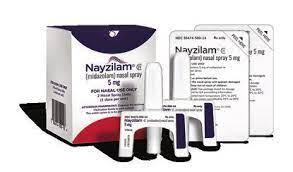Midazolam Interactions
There are 579 drugs known to interact with midazolam, along with 12 disease interactions, and 2 alcohol/food interactions. Of the total drug interactions, 60 are major, 477 are moderate, and 42 are minor.
- View all 579 medications that may interact with midazolam
- View midazolam alcohol/food interactions (2)
- View midazolam disease interactions (12)
Most frequently checked interactions
View interaction reports for midazolam and the medicines listed below.
- Acetylsalicylic Acid (aspirin)
- Adrenalin (epinephrine)
- Ativan (lorazepam)
- Atrovent (ipratropium)
- Augmentin (amoxicillin / clavulanate)
- Benadryl (diphenhydramine)
- Combivent (albuterol / ipratropium)
- Dextrose (glucose)
- Epidiolex (cannabidiol)
- Flonase (fluticasone nasal)
- Heparin Sodium (heparin)
- Keppra (levetiracetam)
- Lactated Ringers Injection (lvp solution)
- Lamictal (lamotrigine)
- Lasix (furosemide)
- Lyrica (pregabalin)
- MiraLAX (polyethylene glycol 3350)
- Normal Saline Flush (sodium chloride)
- Onfi (clobazam)
- Paracetamol (acetaminophen)
- Phenytoin Sodium (phenytoin)
- Seroquel (quetiapine)
- Tylenol (acetaminophen)
- Valium (diazepam)
- Valproate Sodium (valproic acid)
- Vitamin B12 (cyanocobalamin)
- Vitamin C (ascorbic acid)
- Vitamin D3 (cholecalciferol)
- Vitamin K (phytonadione)
- Zofran (ondansetron)
Midazolam alcohol/food interactions
There are 2 alcohol/food interactions with midazolam.
Midazolam disease interactions
There are 12 disease interactions with midazolam which include:
- acute alcohol intoxication
- closed-angle glaucoma
- respiratory depression
- seizures
- prolonged hypotension
- prematurity
- CNS depression/electrolyte disturbances
- congestive heart failure
- renal/liver disease
- depression
- obesity
- paradoxical reactions
More about midazolam
- midazolam consumer information
- Compare alternatives
- Pricing & coupons
- Reviews (148)
- Latest FDA alerts (4)
- Side effects
- Dosage information
- During pregnancy
- Drug class: benzodiazepines
- Breastfeeding
Related treatment guides
Drug Interaction Classification
| Highly clinically significant. Avoid combinations; the risk of the interaction outweighs the benefit. | |
| Moderately clinically significant. Usually avoid combinations; use it only under special circumstances. | |
| Minimally clinically significant. Minimize risk; assess risk and consider an alternative drug, take steps to circumvent the interaction risk and/or institute a monitoring plan. | |
| No interaction information available. |
See also:
Further information
Always consult your healthcare provider to ensure the information displayed on this page applies to your personal circumstances.


